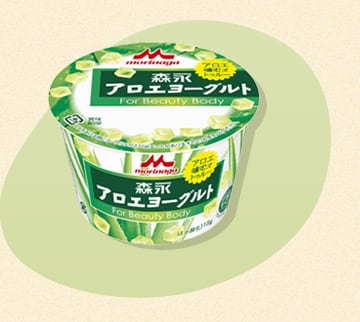First there was Greek. Then came Icelandic. Next, Japanese?
“These days, Greek yogurt’s expansion is slowing down, and buyers are looking for something new…and aloe itself is getting more popular,” Hiroyuki Imanishi, president and CEO of Morinaga Nutritional Foods, told FoodNavigator-USA. “It’s good timing for us to enter this market.”
ALOVE’s upcoming launch is poised to be Morinaga’s first US-made aloe vera yogurt to be sold in national retailers, but the product concept itself—a light and thin yogurt with suspending cubes of aloe vera particulates—has been around in Japan since 1994.
An uptick of enthusiasm for all things Japan
Food trend forecasters have noticed that there has been increased enthusiasm and familiarity with Japanese foods and beverages—a trend which Campbell Soup’s forecasters dubbed 'Advanced Japanese' and Whole Foods’ buyers call 'Japanese Food Beyond Sushi.'
“You have cultural varieties of yogurt on the market, and we found an opportunity to position ourselves as a Japanese style [yogurt] which includes differentiation in the process, as well as the viscosity of the yogurt,” Cally Casey, marketing manager at Morinaga Nutritional Foods, told FoodNavigator-USa. “It’s a thinner yogurt than what American consumers are used to,” she said.
According to a Morinaga-commissioned survey of over 500 males and females aged 18-59 in 12 US states, “80% of target yogurt consumers show a strong tendency to ‘want to try new products,’” a spokesperson for the company told FoodNavigator-USA.
“The survey revealed that 60% of respondents show purchase intention for aloe vera yogurt, with the most likely to purchase being those who eat yogurt often, are very health conscious and those who pay attention to ingredients when choosing products,” the spokesperson added.

From across the Pacific: Package redesign and route to market
Morinaga’s route to market strategy for ALOVE starts in the West Coast to gain regional traction, especially in the state’s many Japanese, Korean, and Chinese grocers. With Morinaga’s existing distribution network and connections in the US (it has been selling Tetra Pak aseptic tofu stateside), the company plans to enter national conventional grocers as well as the natural and specialty channels.
A big part of repositioning the product for the US market was package design—it wasn’t just text that needed to be translated, but also the branding typologies. “The original aloe packaging from [Japan] is very busy,” Casey said, referring to the prevailing packaging style and consumer preference in East Asia.
“Part of the challenge of bringing it over here was a little bit of reformulation, but the critical part was repackaging— [it’s now] minimal, clean, with a natural-evoking look and feel,” she added.
“It really pops in the dairy set—There you see a lot of animals, you see cows, you see the wallaby kangaroo. Ours, you see an aloe vera plant, so it tells you exactly what it is.”
